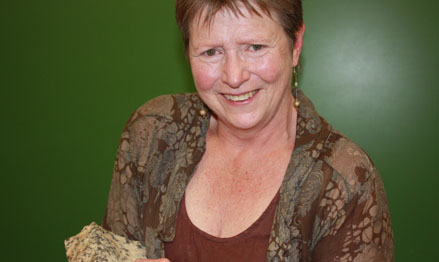Latest News Archive
Please select Category, Year, and then Month to display items
13 November 2018
Photo Moeketsi Mogotsi
 Kovsies took an active stance against sexual and gender-based violence through various campaigns in October.
Kovsies took an active stance against sexual and gender-based violence through various campaigns in October.
President Cyril Ramaphosa recently announced that South Africa will launch a national strategic plan to tackle gender-based violence (GBV) after years of lobbying by activists. Speaking at the Presidential GBV Summit, the head of state commended activists who called for a nationwide shut down in August in response to high levels of GBV and femicide in the country. He says the government is now reviewing national GBV plans and will develop a national action plan.
Activism at the UFS
One of the efforts launched by the University of the Free State’s (UFS) Gender and Sexual Equity (GSE) Office in the fight against this plague is the # RESPECTME campaign. From 11 to 26 October 2018, the university held its own 16 Days of Activism.
Geraldine Lengau of the GSE Office believes that minority groups deserve the same amount of respect as all other citizens of this country, which is the core concept of the campaign. “The Campaign is a loudhailer to say, ‘just because I am different from you’, be it gender or sexuality, it doesn’t mean that I deserve any less respect,” she highlighted.
Lengau added: “Activism will forever remain important on our campuses as it creates an environment where the community is made aware of matters that would otherwise not have mattered had they not been publicised. Also activism becomes all the more important in advancing the university’s strategic plan.”
Policies advocating against GBV
As stipulated in the UFS Sexual Harassment, Misconduct and Sexual Violence Policy the university strongly believes in the principle of human dignity that is entrenched in the Constitution of South Africa (1996) which resolves to ensure a safe working and study environment for students.
Student Affairs also led a campaign which aimed to highlight the ongoing scourge of sexual and gender-based violence, in line with the policy. “The university is working relentlessly at endorsing the aspects and characteristic traits of respect amongst all of its stakeholders in an effort to reduce the notion of gender-based violence,” said the Dean of Student Affairs, Pura Mgolombane.
Prof Tredoux turns theories regarding the formation of metals on its head
2013-09-17
|
 |
|
Prof Marian Tredoux
17 September 2013 |
The latest research conducted by Prof Marian Tredoux of the Department of Geology, in collaboration with her research assistant Bianca Kennedy and their colleagues in Germany, placed established theories regarding how minerals of the platinum-group of elements are formed, under close scrutiny.
The article on this research of which Prof Tredoux is a co-author – ‘Noble metal nanoclusters and nanoparticles precede mineral formation in magmatic sulphide melts’ – was published in Nature Communications on 6 September 2013. It is an online journal for research of the highest quality in the fields of biological, physical and chemical sciences.
This study found that atoms of platinum and arsenic create nanoclusters, long before the mineral sperrylite can crystallise. Thus, the platinum does not occur as a primary sulphur compound. The research was conducted at the Steinmann Institute of the University of Bonn, Germany, as well as here in Bloemfontein.
Monetary support from Inkaba yeAfrica – a German-South African multidisciplinary and intercultural Earth Science collaborative of the National Research Foundation (NRF) – made this research possible. Studies are now also being conducted on other metals in the precious metal group, specifically palladium, rhodium and ruthenium.
The discovery of the nanoclusters and the combination with arsenic can have far-reaching consequences for the platinum mine industry, if it can be utilised to recover a greater amount of platinum ore and therefore less wastage ending up in mine dumps. This will signify optimal mining of a scarce and valuable metal, one of South Africa’s most important export products.
For Prof Tredoux, the research results also prove thoughts she already had some twenty years ago around the forming of platinum minerals. “Researchers laughed in my face, but the evidence had to wait for the development of technology to prove it.” Young researchers were very excited at recent congresses about the findings, since the new models can bring new insights.
“Chemistry researchers have been talking about platinum element clusters in watery environments for quite a while, but it was thought that these would not appear in magmas (molten rock) due to the high temperatures (>1 000 degrees celsius).”
Prof Tredoux has already delivered lectures at congresses in Scotland, Hungary, Sweden and Italy on this research.
Read the article at: http://www.nature.com/ncomms/2013/130906/ncomms3405/full/ncomms3405.html